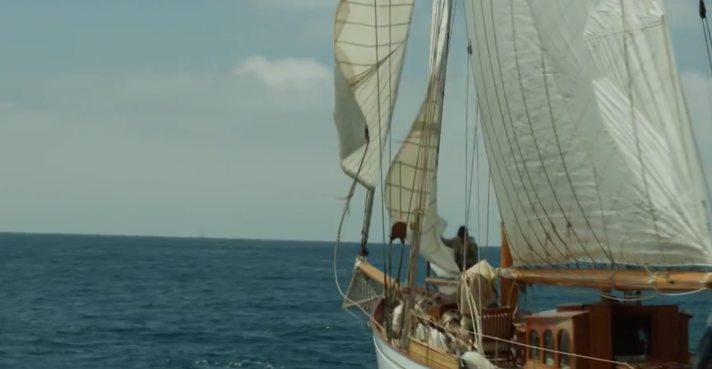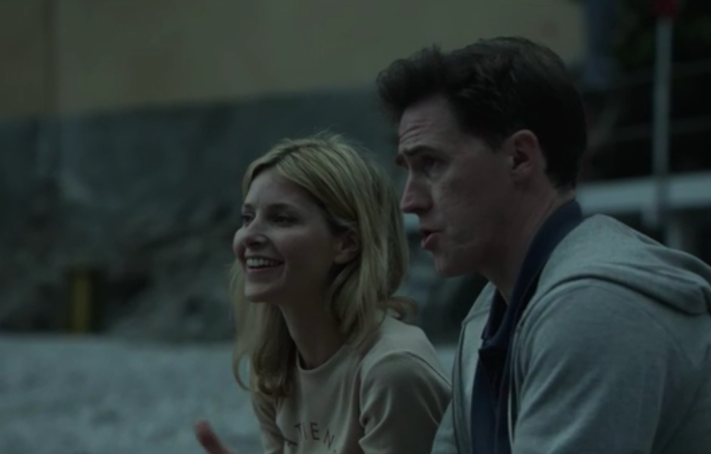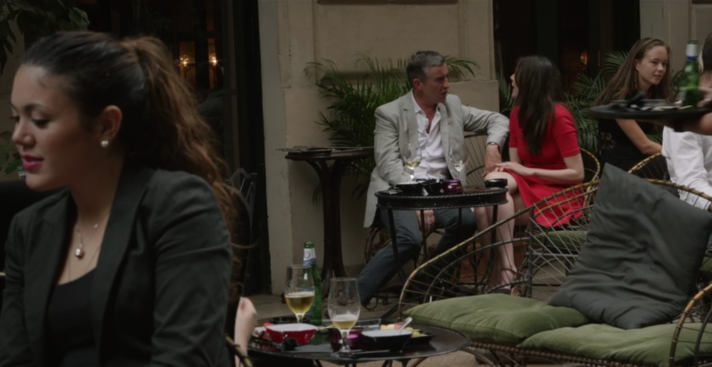“I sometimes think that one day I will be–and so will you–on a slab. You’ll have a little tag around your toe, and somebody will be there embalming you. Ever think that? ‘Cause its gonna happen. Unless you’re lost at sea and we cannot find you–which is unlikely–you will one day lie on a slab.”
In its own right, Michael Winterbottom’s The Trip to Italy (2014) is a worthy exposé of Italy’s exquisite countryside. Documenting lyrical hills, the storied Mediterranean Sea and the peerless Amalfi Coast; the journey through one of the world’s most beautiful regions is cinematically gorgeous.

When viewed as the follow up to The Trip (2010), its a wonderfully crafted journey into the heart of the human condition: Focussing on flux, in particular. I believe that the best films are those that can’t be adequately told through a novel, and The Trip to Italy is a prime example.
Whilst there is always a danger in utilising the classic sequel trope of inverting the protagonists’ character traits, it can work when executed carefully. In The Trip, its the affable (but not as affable as people think ) Rob Brydon who plays the role of centred family man that knows his ups from his downs. Steve Coogan, meanwhile, plays his sparring partner as a man fast approaching 50, and more importantly, as a man who knows it. They’re the classic odd couple, with Coogan reluctantly inviting Brydon to travel through Yorkshire with him because his younger girlfriend has left him and all his other friends are busy.
The premise behind both films is that the viewer gains an insight into the mind of the protagonists through a week in their lives. In the first instance, we follow their Land Rover as it speeds down the highway and then traverses archetypal, winding lanes with half a dozen restaurant and hotel stops along the way. In the second, its a rented Mini Cooper – unashamedly picked due to their shared appreciation of Michael Caine and The Italian Job – that winds through visually arresting coast and vineyards alike.
One of the reasons the first version works so effectively is that Coogan doesn’t appear to particularly like Brydon. This is a man who has, by all opinions except his own and his sympathetic manager, passed his peak and is headed downward. Even though both characters are lightly fictionalised versions of themselves, Coogan’s previous drug habit and his waning notoriety amongst an audience to whom he was once described as ‘the next John Cleese’ are both features of the series. It ends with a tentative offer for Coogan to star in an American TV series as a pathologist, with Coogan rejecting it even more tentatively on the grounds of wanting to be in England for his children, to whom he appears to be a disappointment.

In the sequel, Coogan seems to have mellowed. He lounges in a panama hat and a pair of Ray Bans, and seems contentedly tired rather than perpetually agitated. Pathological has been put on temporary hiatus – his backflip on starring in the show left to lie by those on screen – and the four years between drinks have given him an intangible readiness to relax. Brydon, on the other hand, last seen contentedly embracing his wife, has gone the other way. His star has risen in the UK thanks to his prolific panel show presence, and he’s casting his eyes towards Hollywood. His marriage, once a source of bliss, has become strained. Whilst his wife only appears on the other end of a handful of phone calls this time around, their infant daughter has become difficult to handle, and wife appears to resent husband for leaving the family to jaunt through Italy. His impressions have begun to grate her, and his zeal for conversation is rebuffed. Their brief conversations resemble Steve and Mischa’s painfully disjointed phone calls from the first film.
Its with this change in mind that Rob has his head turned by Lucy – deckhand on Patience, the boat that carries them through the Bay of Poets – another significant historical point; being the waters that Lord Byron would swim across to meet fellow exile Percy Bysshe Shelley.
The works of Shelley and Byron operate as the axis for the direction of the lads’ travels, replacing Robert Coleridge and William Wordsworth from the first journey. They postulate on everything from the whimsical relationship between the pair, to Edward Trelawney’s petty insistence that he knew them well enough to build a tourism empire in their names.
The Trip to Italy is punctuated regularly by moments of emotional significance like this. Arguably the most powerful moment of the first film is when Coogan stands in front of the bathroom mirror, totally alone and trying vainly to imitate Brydon’s Small Man in a Box routine; before failing and watching the tears sparkle in his own eyes. At the same time, Brydon is engaging in a typically low-key and failed attempt at phone sex with his wife through the voice of Hugh Grant (“I am, again, bottomless…just letting it off the lead, letting him run around the carpark and seeing if he sniffs our anything interesting”). In another, as Rob rambles about the brilliance of Michael Sheen – an actor it turns out beats Coogan to roles on a regular basis.
“You have to admit he’s brilliant”
“I’m fucking brilliant”

In film two, its Brydon’s turn to tell himself that he’s not good enough to star in the Michael Mann film his agent has suggested, as Coogan dozes in the next room with the stereo on and a copy of the works of Byron resting on his chest.
Coogan’s rendition of ‘Alas, poor Yorick’ from Hamlet, deep in the Naples catacombs, is another highlight. He corrects Brydon’s boisterously incorrect attempt at the soliloquy with an authentic piece of acting that genuinely stands out. “Where be your jibes now? Your gambols, your songs, your flights of merriment – wont to set a table on a roar”. He then bursts into an unmistakably organic smile, and raises his hands in surrender to futility.
“Do you have children” Brydon asks Lucy as they sit together on the doleful, rocky cove where they embark for dinner.
“No”, she responds, “but I wish I did”.
Its a powerfully melancholic answer, equal or perhaps greater than the opening quote from this article. The reason it works so well is that it doesn’t try to be too transcendent – its hardly the first time these words have been used on screen – but manages to mean so much through its lack of ambition. It’s the juxtaposition between Rob, his head turned by her exotic seafaring ways, and the way she visibly shrinks as she says it. Just as Rob and Steve have debated over the course of their travels, but particularly amongst the Yorkshire Moors – there is no correct way to be.
There is no perfect choice to be made; no answer to happiness. Whether you’re viewing it from the perspective of your early 20s like myself, or you’re on the other side of 40 like our protagonists: Winterbottom’s lens exposes you to a reality that seems like it should be forbidden. A nihilistic, yet deeply meaningful take on the meaning of life that – keeping in mind Lucy ends up in Rob’s hotel bed that night – would have never made it to air in the days when the BBC acted as Britain’s moral compass. There is no way of knowing the meaning, or whether there is one at all. Its both confronting and comforting, and is what makes this seemingly carefree jaunt through the fineries of life seem far more significant than it may otherwise be.